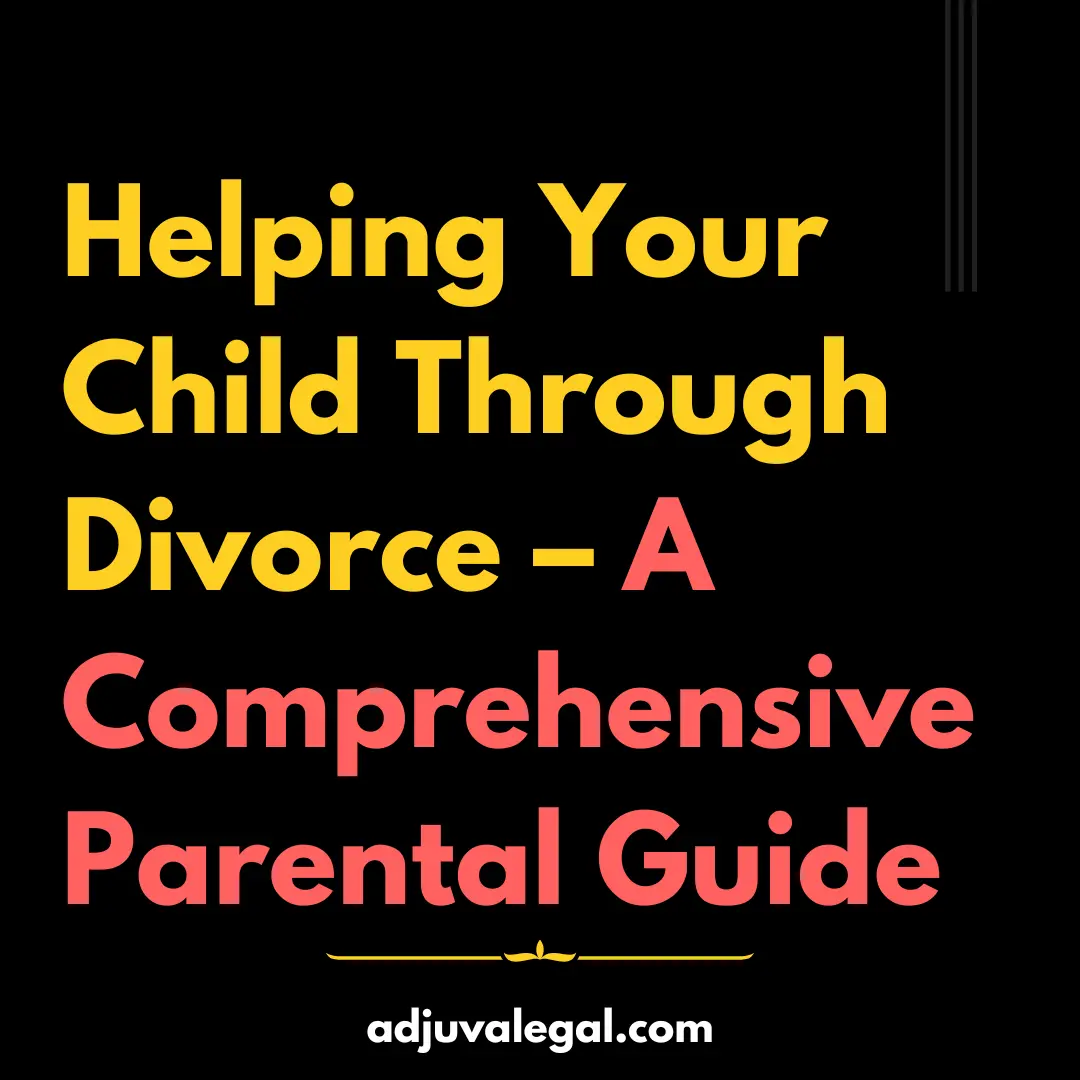Divorce in India is considered taboo – a thing that should not be talked about. And the fact of the matter is, it’s just another social taboo that needs to be broken.
Divorce is not a sin. It is, in fact, an important part of life and society that should be talked about more openly.
There are many misconceptions about divorce in India that people may have, and they could affect the way you move forward with your case.
We will try to understand at least 10 of the most common misconceptions about divorce in India so that you know exactly what to expect from your divorce proceedings.
The aim of this article is not just to show you some facts but also to eliminate any myths you may hold. If we are able to help dispel some common notions then we are one step closer to a society where divorce is accepted as an option, not avoided.
1. Divorce can be done on a stamp paper

NO!
Please do not fall into this trap.
Divorce can never be obtained on stamp paper.
It is actually the most common misconception that you can just buy the stamp paper from any general store and get your divorce done. We keep getting calls from people who have actually signed the stamp paper and think that the divorce is complete.
This is not their fault of course. Our legal system is a little complex to understand therefore it is not expected from a layman to know the legal details while considering divorce.
It is always suggested to try quality-oriented and trustworthy service providers.
The couple needs to go through proper legal proceedings to end the marriage.
Get your free but highly professional on-the-go legal consultation now!
Whether it is a one-sided contested divorce or a mutual divorce, the court will decide whether the marriage ends or not and not any stamp paper.
A contested divorce is when one of the spouses doesn’t want to end the marriage. A mutual divorce is where both parties agree and comply with each other’s terms for ending the marriage.
2. Divorce is a sin or taboo in India

Divorce is not a sin. It is, in fact, an important part of life and society that should be talked about more openly.
In a diverse country like India, there are different cultures and religions, each with its own views on divorce. There is no one religion or culture that can claim a monopoly over what is right for all people in India.
There have been changes to the law which have opened up more conversations around marriage and its dissolution.
In spite of these advances, there are still plenty of misconceptions out there – even among educated Indians!
Divorce is not a sin in Hinduism or any other religion for that matter and has been practised by different cultures over centuries of time under different names – like “Talak”.
But there’s a huge taboo around this word that prevents Indian couples from talking freely about it because it is considered shameful for divorced men and women in all their communities.
It’s a thing that should not be talked about, which means it hasn’t been discussed openly or seen as an option for many people who find themselves with no other choice.
It has also been whispered and passed on from generation to generation by the elders of society without any basis whatsoever – leading to these misconceptions about divorce in India
3. Divorce in India is not a legal process

This misconception can be attributed to the lack of knowledge about what a “divorce” actually means for married couples.
In order to file for a divorce in India, one has to follow due processes at the family courts which may include filing separation (legal) cases if there’s no material dispute between both parties; waiting periods before granting interim reliefs like maintenance, child custody, etc.; seeking clarifications on related issues from judges; cross-examining witness(es), among others.
In fact, if you don’t have a marriage certificate, it’s okay. But you must have a divorce decree to end the marriage.
In several parts of this country especially the rural ones, the couple are separated by just an announcement by the Mukhiya or Sarpanch.
The truth is you may not involve the law in marriage ceremonies but you must involve it in divorce proceedings.
4. Women cannot divorce their husbands

Continuing the previous point – women have always been a victim of the ignorance and ill information of society.
Yes, we want here to be gender-neutral, but this remains the harsh reality even today – When women are walking hand in hand with men in almost every sector, the same gender is being punished for just being female.
A lot of rural societies still think that divorcing is a right of the husband only and the wife has no say in it. Whatever the husband would decide will be final and the wife can not go against the decision.
Well, for this, we are to blame. There were several social evils that have been eradicated by our ancestors, thanks to them. But there still remains a long way to go.
Of course, this misconception is diminishing due to several factors. One of which is the introduction of online legal service providers like us.
We are trying our best to provide high-quality and complete legal advice to almost all the sectors, castes, religions, and communities, of India and the world so that no one can be misled by anyone. Contact us to get legal advice like a friend!
5. If you have kids, it’s better to stay with your spouse

It is another big misconception, that if you have kids it’s better to stay with your spouse.
Sometimes staying in a marriage can do more harm than good for your children when they see their parents constantly fighting and struggling.
In such a situation, instead of being at home all day long, children are usually sent away from home so as not to be used by one parent against another during arguments or disagreements.
Kids suffer greatly because of this misconception too – they don’t get much time with either parent due to living arrangements and custody agreements. This leads them into adulthood feeling very unconnected which can lead to drug addiction problems later on down the road.
Studies in America have shown that children of divorced parents tend to do better in life, compared to those from intact homes.
There is a greater chance for them to earn more money later on in their lives because they can make choices about which career path they want without feeling pressured by what would be expected according to social norms or family tradition.
Divorce should happen after careful consideration because the repercussions affect everyone involved – both adults and children alike but the utmost importance should be given to what actually the couple wants and not their kids or well-wishers.
In India, we’re brought up thinking that divorce is something really bad but there could be circumstances where people need to separate for the sake of themselves or their family members.
6. All property goes back to the family after separation and there is no alimony or child support

Divorce is the separation of two people who are in a marriage or civil union. After divorce, one person’s property does not automatically go to their family after they separate and there may be alimony (money paid by spouses for economic support) and child support (a monthly payment made from one parent to the other).
It’s common for Indian families to have joint-property ownership or ‘family assets’, which often include land, homes, cars, cash, and businesses. These properties do not necessarily belong solely to either party – instead, they are jointly owned so that both parties can use them as needed during the course of the marriage/civil union.
This means when couples part ways these assets must be divided according to how much each family asset is worth, and then split into the number of children.
Several religions have several succession laws e.g. Hindu Succession Act for Hindus and likewise.
See, divorce is not the end of life. One needs money to avail basic necessities so there is the concept of alimony/maintenance and interim maintenance.
Alimony or maintenance is the amount of money that is paid by the ex-husband to his former wife or from wife to husband for her/his expenses after divorce.
Again there is this concept of child support which is the same support money but exclusively for the welfare of a child.
7. Divorce proceedings are lengthy and expensive

Frankly, this can not be termed as a misconception but rather a generalisation.
No doubt, legal proceedings are taking a lifetime in India but this is not all true with the divorce part, mutual divorce part to be specific.
Read this to know every single thing about mutual divorce in simple language.
If possible, the couple should opt for mutual divorce and not divorce proceedings.
The contested divorce takes time to argue and counter-argue – which might make things uglier and miserable.
So, it’s always better to go for a mutual divorce if you can and avoid going through lengthy one-sided divorce legal procedures which will be very money-consuming as well!
It is actually very annoying for the parting spouses as they are already going through a rough time and then they have to deal with these lengthy and expensive court proceedings. But this is not the case always. So this point is more generalisation than a misconception.
8. The children’s custody is the primary concern of a divorce case
The children’s custody is not the primary concern of a divorce case.
It doesn’t matter who has more power or money, if one spouse wants to raise their kids together they should be able to.
Custody battles are often fought due to ignorance about what it means for both parties – but this can happen in any situation and all parents need help from professional lawyers while going through such situations.
In India, many people believe that during marriage, there is no point in discussing separation because everything will work out eventually even though you get into arguments with your partner now and then.
But when these fights start becoming intense and frequent then it’s time to break up so as not to ruin each other’s lives forever! So never wait until things become unbearable.
Make sure to discuss the custody of your children before deciding on separation so that there is no confusion and conflict about who will take care of them if both parents are not in their lives anymore. This is one of the concerns during a divorce but not the primary concern at all.
The only primary concern is the possibility of spouses living together. Rest all are secondary.
It’s worth remembering that when discussing divorce, there should be an open dialogue where each party takes responsibility for his or her actions – this helps prevent creating unnecessary anger towards one another after parting ways.
9. Women are not allowed to remarry after divorce
We hope this could be a misconception for the men as well.
This point contains two misconceptions.
Firstly, women are not allowed to remarry. Secondly, only women are not allowed – men are.
Everyone is allowed to remarry with whoever he or she wants. Even with the same person who is now the ex-spouse.
Divorce is the end of a current marriage and not a stoppage to the marriage for life.
There is a certain time period in different laws after which one is allowed to remarry.
Like in a case of divorce under the Hindu Marriage Act, both parties must wait at least 90 days before marrying someone else or getting married again.
10. A woman’s family will never accept her back if she gets divorced

This is a very common misconception that once divorced the woman will not be accepted by the family.
And even if they accept her physically and allow her to live with them, they can not accept her mentally or will always treat her like a divorcee.
See, the family is a family after all. The girl is born and brought up there – how can her own family members not accept her?
Of course, we have seen many examples where the girl is not being accepted by her own parents just for thinking about divorce. But this is an exception.
You can not make the rule-out of exception. Especially when we are talking about Indian families who treat loved children like anything.
It does not matter what the family thinks about divorce, it is a personal decision. A girl can decide for herself whether she wants to go through with it or not – no one has that right over her except her alone.
She should also know that after this there will be legal implications and all of which are quite complicated in India so she must think wisely while making any decisions (for women who are not self-earning).
Conclusion
In conclusion, divorce is not a sin and it should be discussed in Indian families.
Once you decide to get divorced (or marry someone else), there are legal implications that need to be taken into account; this can include custody of your children or even the division of property.
Divorce is not easy for anyone – but if you know what you’re getting into, then chances are the outcome will turn out better than expected.
The most important thing when deciding whether or not to end a marriage is talking about all aspects with your partner- once they hear how their actions have made you feel, things may change accordingly!








